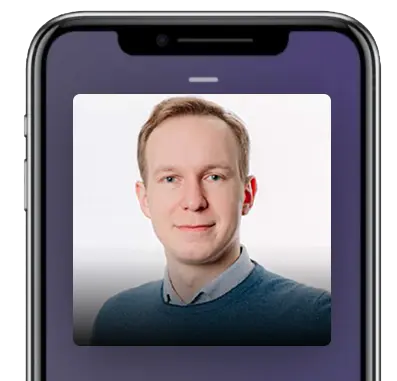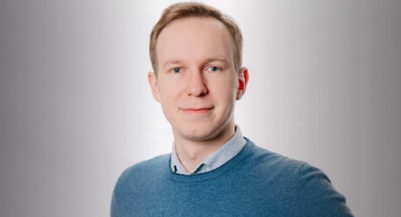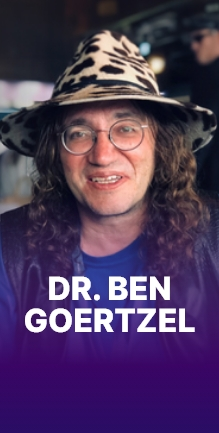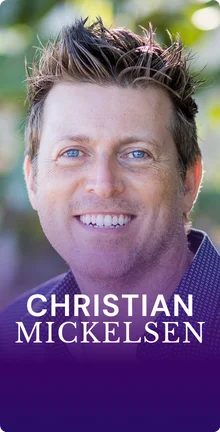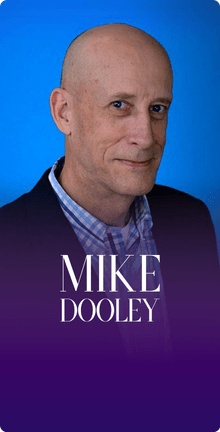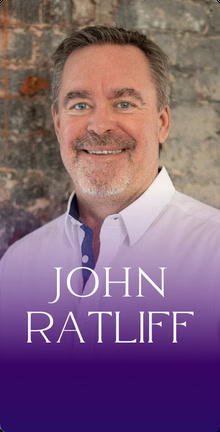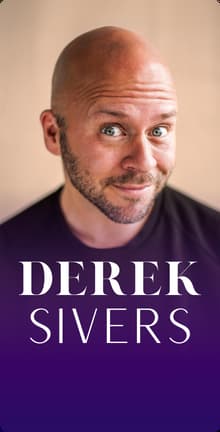In this Episode
- [07:29]Alexander Zheltov shares his background, including his early passion for math and music, and his experiences attending a summer school in the UK.
- [13:40]Alexander discusses the challenges and successes of his company, Diamond Education, and how it evolved to serve a broader audience.
- [26:00]Alexander highlights the importance of positive certainty and co-creation in achieving meaningful change and success.
- [33:53]Alexander conveys his thoughts on the potential impact of AI on jobs and the need for students to develop AI-related skills.
- [37:11]Alexander emphasizes the importance of gratitude and the law of thankfulness in navigating life’s challenges and opportunities.
- [45:48]Alexander elaborates on the concept of significance and the balance between spiritual and material pursuits.
- [48:45]Stephan accentuates the importance of being intentional with attention and not being sucked into the shiny objects of technology.
- [55:30]Alexander reflects on the influence of spiritual practices and the importance of aligning personal and business goals.
Alex, it’s so great to have you on the show.
Thank you, Stephan. I’m super excited to be here as well.
We know each other pretty well. We’ve been working together for almost two years now. Is that right?
We started when I was in Miami, currently in Dubai at this very moment, and my daughter was about to be born, and my daughter has recently turned two. We’ve worked for nearly two years, and it’s been a very profound and exciting journey.
Awesome. Let’s start off with a little bit about your origin story. I would love for you to share with our listeners how you ended up in this amazing place that you are in the world. Not just physically, metaphorically, you have really created some amazing opportunities for a whole bunch of people, not just for yourself and your family. You’re leading a team, you’re leading a movement, and you have a lot of customers and clients benefiting from your wisdom and technology. Let’s start with your hero’s journey.
Thank you. I just started reading Story Brand 2.0 today. So, the hero’s journey is just straight there at the beginning.
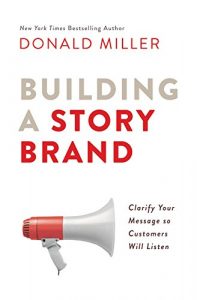
All right. Yes, and was I the one who introduced you to Story Brand and Donald Miller’s work or was that somebody else?
We’re not sure. That could have been you, but also a couple of other people. When we started to finalize some of the website copy for the firm, for my company, Flylane, we realized that we’ve got to talk not about ourselves and how cool we are. We’ve got to really focus on the hero, the hero being the student, the family or the school that works with us. That’s how it reappeared the other day, so I decided to give it a read. Then there was a miracle there, actually, right at the beginning. I know we’re going off track here a little bit, but I’ll make sure to introduce myself clearly. I want to say that sometimes we expect things to be worse, but they’re not; they’re going to be better. Because when I started reading the book, I was thinking, ‘How do I actually find the time?’ I had about 20 or 30 minutes today at the Visa Application Center because my wife, our kid, and I are currently applying for UK residency. I had 20 or 30 spare minutes.
I started reading it and had a question: how do I actually use this? Right at the beginning of the book, it’s a second edition. At the start of the book, there is a paragraph that says, “We have created an AI tool for you to create your story brand for the firm or for yourself as a public figure. Here’s how you use it, and here’s a link.” I had a question in my head. How do I make the best use of this time? I actually received the response straight away, right there in the first pages of the book. I sent this to the team and said, “Guys, we can read the book. It’s great that we can actually start using the tool because they have trained their AI on all of this knowledge.” It was really cool.
A fun synchronicity about that is you have a question and the universe provides an answer. We were just having this conversation a few hours ago, and Dr. John Demartini. I was just interviewing him earlier today. He’s been on the podcast several times, and he’s amazing, a polymath, a real genius, and a really wonderful person too. He teaches that the quality of your questioning determines the quality of your life. He was sharing so many wonderful stories about this. It was a very inspiring episode. It makes sense that you bring this up just a few hours later.
One conversation leads into the other as we’ve discussed during our calls over the past two years.
Start being less of a spectator and more of a doer. We actually learn by doing and co-creating rather than just trying to be the best spectator possible. Share on XOur listener who’s not familiar with the concept of one conversation leads to another. Can you elaborate a little bit about that? Because we know we’re talking inside baseball here, but our listener may not be familiar with that concept.
Let’s say you have a meeting with an employee or a team member. You start from somewhere, and then you enter somewhere. But then you actually go into the next meeting, and it feels like the next meeting —that’s how I’m seeing it. It’s my perception of it. You’re going to the second meeting, and it feels like the first meeting led you there, even though it was scheduled earlier. There is much more value now in the second meeting, where you can maybe pick up similar themes and insights, as we are doing now. But sometimes you actually have learned something, and the sooner you apply it, the better. Maybe there is a question that you want to ask that pops up in the first meeting, and then you do it in the second one. It’s a bit like it’s a continuous flow of information in this game of reality. It shows that everything is made and stitched perfectly, if that’s the right way to use it.
That’s a great example. Another personal example for me is when I was in the phase of going to a lot of psychics. I was just really into that for a period of time. One psychic would then pick up where the other one left off. They weren’t exchanging notes or anything, but it was just uncanny how the conversation kept going across all these different folks who had no idea that I was talking to each of them. A more public example of this is Dolores Cannon, who was a very famous author in the area of spirituality. She did all these interviews and past life regression, hypnosis sessions. She found that when she was talking to what she called the subconscious, or the infinite, through hypnosis, she’d hypnotize this client.
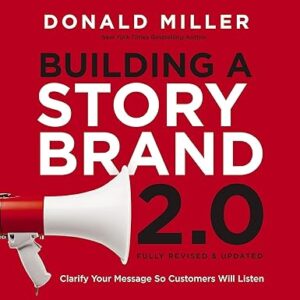
Then the conversation would pick up exactly where it had left off with the previous client. She realized this is one contiguous subconscious, all that she’s speaking to, and not just individual subconscious entities operating in a vacuum. She was able to continue conversations with completely different people in their hypnotized state, even though she was interrupted for a couple of hours, perhaps during a plane ride or something similar. She’d pick up the conversation right where she had left it off with the previous person. I just thought, wow, that’s super cool.
There are many. Once I actually see you and start talking to you, I realize why there are so many miracles in life; it’s all about noticing them. It’s really about noticing and acknowledging them, and asking ourselves questions like ‘What’s beautiful in life, what’s good, and what’s great here.’ I can perhaps tell a bit of a story about my background to make sure that the listener understands who Alex is, what he is on the show, and what he is doing here.
We’d love to share a couple of ideas and stitch the pieces together. I’m Alex, 32 years old, originally from Moscow, Russia. That’s where I was born and raised. At the same time, Russia believes it has excellent schools for maths and music. That was really doing both, both maths and music. I was playing the flute and the piano, and I really loved and enjoyed that. But back in the day, it was more about flexibility in my learning, which meant that as a kid, I couldn’t really choose my subjects at school. I couldn’t do it; I had to do what I was told. Sometimes it contradicted my kind of life path, whichever way I was seeing it.
At the age of 10. My parents said, “We got a gift for you.” That’s when the first Harry Potter came out—the first part. I remember I bought a VHS tape with it. I watched it, and I’m like, “Wow, super cool.” I felt as if I were Harry Potter. I received an invitation to join a summer school in the UK for the first time in my life, and I went off to the UK by myself, just with one friend. His name was Nikolai, and Nikolai went to that school. We had a bunch of kids there, all from different countries. We could choose our own activities, of course, study English, and pick up other subjects as well. I don’t know if I did photography or something, but that was not the point.
The point was about having creative freedom and the opportunity to pursue whatever you’re passionate about. I came back to my school. Summer has passed, and I felt a different vibe there; it was much more strict. I thought, “Ok, can I go next summer?” I’ve asked my parents, “Can I go next summer?” I went every summer and realized there might be a way. As we’ve discussed with you multiple times, Stephan, there’s no coincidence here. But then I thought, maybe I could study there fully and be a boarding student, which means I would come to the school and wouldn’t reside in my country anymore. I’m actually coming to the school, and I’m living somewhere else internationally, therefore in the UK.
I had this thought, and initially, I thought it was very expensive. I asked within my school group, and everyone said it’s going to cost a million dollars. A million dollars a year sounds like a lot of money. In 2008, it sounded even a lot more, a lot bigger than it sounds today. I thought, “Maybe it’s not that expensive because who got that information about a million dollars? Where did it come from?” Somehow, when I found a catalogue of schools, which my mother brought, it turns out, home from one of the fairs. I found a catalogue of schools available for students like myself who are bright, aspiring, and somewhat wanting to study internationally. I found a school that I really like there. It turned out that the price was quite high at the time—maybe 30,000 to 40,000 US dollars—but it was not a million.
It sounded definitely more affordable. I remember that I did my research back in the day. It was just having one catalog, another catalog, and searching a bit on the web. But we didn’t have ChatGPT or Claude or anything that extraordinary back then. I’m okay with that; that’s the school I like. That is going to be the school where I’m destined to be. The name of the school was Gwyneth Niburgus College in York, which is two hours north of London. I came to my father’s room and I said, “Father, I want to study in the UK. Here’s how much it costs and everything.” The funny thing was that my father approved this project, which involved three years of high school followed by three years of university or more, all within a minute. He said, “Sure, off you go and go with your mom and apply to a place that will help you use there.”
The power of being a generalist is going to shine more than ever because you can outsource a lot of specialized knowledge to AI and focus on connecting different spheres. Share on XThat was a huge miracle because I’ve literally heard my father say, “No so many times in my life.” I understand that he is now saying no to all the distractions. “Let’s go to this concert.” He’s like, “No, that music is kind of shit. You shouldn’t go there.” I’m thinking ‘why,’ but then it’s kind of really not that good. But in some cases, he was saying, “It’s not worth going there, it’s not worth having another pizza, we can save some money and instead go for a nice meal on Saturday rather than order three pizzas in a row, whatever.” There were a lot of kids. I, as a kid, was reacting to that, “No, why are you saying that?” No, all the time when I actually told something serious to my father, which was about going to boarding school, studying internationally and making this big change. At that time, there was no war. There were flights from Moscow direct to London.
It’s 3 and 1 hours. It’s not that bad. It’s actually really good to fly 3 and 1 hours. You’re in a different country. But you’re close still. 3 and 1 hours is not 12 hours or 15 hours or something. I went to study in the UK, and I was under the impression that I had to be the best student. I tried to be the best student. To be the best student there, you have to not only excel in academics but also participate in lots of sports and other activities. I ranked as the best student in the school according to all of these parameters. I chose the subjects that I really became passionate about, such as business, economics, maths, and German. I learned German back then. English was there to some extent, but it was not one of the official subjects. It was more like, “Know English, OK? Here’s what we do: tick this box off, and off we go.”
Then I went to uni, and there I realized I’m really passionate about schooling—not necessarily university schooling, but more like high school—because I could really dive into the subjects. When you study just three or four subjects, you really dive into them. You become so passionate about them. I thought, “Wow, that’s a great way to study.” I also wanted to launch a business. When I came to university, I intended to launch a business. By the time I’m out of uni and have two university acceptances, one of them will be from Cass Business School in London. Now it’s called Base Business School, and another option is the London School of Economics, both of which offer a management degree. I thought, “Okay, so management sounds like something that I can apply to life and business.”

At the same time, when I was at the first lecture at uni, I understood, all right, one thing, they’re repeating the stuff that they told me at school. Second thing, they’re doing this in front of 300 other kids at my school. We had four or five kids in a class, and you could get personalized attention from the teachers. I thought, “Okay, here I am, I have three years to build a business by the time I’m out of this university, and I have three years in a way of accommodation paid by parents, studies paid by parents and a bit of pocket money for food and other things.” But as it turned out, the university was in London, the pocket money didn’t help with going out with friends or living a normal life by London standards. I was thinking, “Okay, I’ve got to build the business, but I’ve got to build it fast because there are a lot of things to do right here and there.”
I started interviewing people back in the day, and I called this Able Project. I began to really discover, “Okay, what’s it like to build a business?” At some point, I got a message from a friend from the same uni, and the friend said, “Can you help with admission to one of the schools that you went to before coming to university? Can you help?” I said, “Yeah, sure.” I know I was grateful for everything that the school gave me. I was so grateful for the experience, for the friends I’ve met, and for the studies and great experiences. The whole experience has been wonderful. I said, “Sure, I can help you.” It turned out that people are actually paying around $10,000 for services that allow them to admit themselves to a good school. I was like, “Wow, $10,000 is a lot compared to zero.” I actually really believe in this thing. I really love it.
When you’re studying at a university in the UK or the US, and you’re an international student, you’re really among folks whose families are doing quite well. Either they’re working, and maybe their parents are in highly paid jobs, or they have inheritance money, or a business, or they’re big in TV or social media, or something like that. You have a lot of ideas floating around. We’ve literally had folks offering to buy oil in the morning, and then somebody else selling animals for zoos. Were some very unique animals. Whenever I had such an idea that someone was sharing with me, I did not like it; my heart did not buy it. I had more of a monetary or logical buy-in, but I didn’t have the heart buy-in. When I was offered the chance to help a kid get into a school, that’s where I had both the logical and the spiritual buy-in. I helped that kid get into school. Then it turned out that there is not only one kid who wants to get into good schools.
In reality, either we're climbing up the levels of consciousness or we're going down. There's no standing still right here, right now. Share on XWe’ve actually opened a couple of offices and formed my first company. It was called Diamond Education. Education should have the qualities of a diamond. I don’t remember how that name came about. But I opened the company in the UK, then did the same in Russia, and repeated the process in China and Hong Kong. We had London, Moscow, Hong Kong, and Shenzhen as our offices. Off we went, and it was a very fun experience. But at some point, I realized that the number of leads we had was significant. I graduated from high school in 2011 and started my business around 2011 or 2012. Initially, the business was just serving a couple of customers, but then it grew larger and larger.
At some point, probably in 2016 or 2017. What happened was another great moment when I met Igor Borovikov, who is the founder of two companies. One is called Softline, the other is called Noventiq. It’s an IT service provider, a global one with billions of dollars in revenue. I met him through two channels, which was also very cool. One was through a private bank with which I had a friendship. Second, it was actually through being neighbors that my mom became a neighbor to him and his family in Portugal. At some point, I met him, and I was also helping his daughter with getting into good schools.
We just developed a relationship and started looking at education overall, considering the bigger vision and what the picture looks like. Getting rich kids or kids from affluent backgrounds into good schools or great schools is one thing. But what is our purpose here? He was the first person to do that, inspiring me to look at it from a broader perspective. It turned out that we have thousands of leads, literally thousands of people who are contacting us. But then we have one or two percent of people converting to become actual boarding students or international students, applying to a school, getting a visa, and everything. The question was, “What happens to the other 99 %?” In reality, what happened to them was that they had an interest, but then either didn’t have the money or the willingness to send their kids abroad.
It’s really important to start being less of a spectator and more of a doer —actually playing, executing, and delivering things to make meaningful change happen truly.
Now I’m a father as well. I have a daughter, she’s just turned two. How am I going to send her abroad? I’m sure I’ll answer differently to that question later. But I started to understand what these families are going through. It’s not only about the money; it’s actually about the connection with your kids. It’s really about giving the best possible experience. Once they go to college, you’re losing touch with them anyway, or at least seeing less of them, in other words. I started to understand that, and we thought, “Okay, what if we have the same level of schooling, but online?” That’s when, in 2018, Igor and I jointly created a company called Educate Online.
We started with this name and immediately had programs in the US, UK, and Canada for all the emerging markets. You can do them online. It started doing better. In that moment, the business grew. The growth was 2X to 3X in terms of monthly revenue, which was rather small at the time. We might have made 10 or 20,000 a month, and then we started making around 30,000 to 40,000 a month. Then at some point, COVID just came. The funny thing was that we were right there when COVID came, and we already had the infrastructure in place to teach international students online.
By “infrastructure,” I mean that we had distribution contracts with the schools. We had exclusive partnerships because no one thought, “Okay, Europe or China, who’s going to study there online in an American school? We can secure an exclusive agreement there.” Then we actually understood the basic infrastructure, such as setting up an LMS and using Zoom and other tools. When COVID came, our business grew 30 times in one month. It was just a crazy time. It was a really joyful time for us in terms of actually being able to serve these students because we had people literally call us and they said, “My school has switched from offline to online and they’re doing a really poor job there, can you help us?”
We actually had this infrastructure in place, but we didn’t even build it; the schools constructed it about 10 or 20 years ago. That was really cool. We started to expand internationally, and since then, we have served around 35 countries. When we look at Stripe, we can see where the payments are being made from. It’s fun to see the contribution that we’re making to students globally. But then came another pivotal point, and that’s when the name Flylane was born. We reached a point, and it was actually through the work with you, Stephan. We reached a point where we understood, “Okay, we initially serve tens of students, maybe hundreds. Then we got into thousands and probably 10,000, and just a little bit more than that.”
We actually learn by doing and co-creating rather than just trying to be the best spectator possible.
But when we look at students overall, we see a big change happening in the world right now with AI, robotics, and many different moving pieces. We are just serving the students who want to study internationally. We can create a new ecosystem for learners, not just for expert students, and focus on international students.
But this time, we can actually make something valuable for all the students in the world. That’s when we decided to rebrand our company from Educate Online to Flylane. Flylane is a newly made word that means that every student has a certain path in life, and we’re helping them take off and basically fly on their paths. We’re helping them navigate their journeys. We are helping them with tools. We’re helping them with our newly created AI tutor and many more products to come.
The idea is that we are building a personalized learning ecosystem around every student. We’ve decided to go a step further, and we’re going to do that not only with students but also with schools, transforming the whole ecosystem. This is quite a long intro about what I did, what I’m doing. I’m really excited about the possibilities and changes that AI will bring to every one of us. I want to ensure that every student on planet Earth, and possibly beyond at some point, will benefit from what Flylane is offering and help the world. Students transition from yesterday to today and to the future because we have heard this many times, that we have to be preparing students, kids, for jobs that don’t exist yet, and now that’s 1000 % true.
Many jobs we think will exist will have very few humans in those positions. I’m seeing everything from 50% unemployment predictions to 99% unemployment predictions. We’re not even preparing people or kids for careers or jobs; instead, we’re preparing them for their life mission and whatever that is. It’s volunteer work, it’s being a philosopher or some sort of non-paying quote-unquote work, but it’s meaningful. We don’t have to worry about making the monthly rent because, whatever happens, whether it’s universal basic income or however things unfold, we just need to trust that it’s going to go well because that’s the divine plan. It’s not Mad Max. It’s a beautiful unfolding. If we live in that place of trust and faith, then we can be a part of that solution and not be cowering in fear.
That’s for sure. Fear is always misleading. Fear is not divine. Fear is from the other, let’s say, darker. There are two sides. One is lust. Is this the right word to use? Then there’s fear. That’s the way the devil plays with all of us. It’s very important to notice that, because fear is imagination turned upside down in a way. I am, I’m prone to this. I’m great at fear; at the same time, I understand that whatever I feared a year ago means less than 1% of it came true. It’s not worth it. It’s not worth it to live in fear, nor is it worth embracing fear. Fear, negative thinking, or negative expectation gives certainty and significance.
When we feel negatively certain about something, especially when you see that in politics, they’re certain, you’re like, “Wow, this guy is crazy certain, I’ve got to follow that guy.” But it can be just, “He’s definitely certain, but it also might mean crazy can be really misleading because there is also positive certainty.” It’s more like fine foods rather than just Cheetos or other types of crisps. It has a bit of a different taste. I mean, not even a bit. It’s a completely different taste. It feels more like a marathon rather than just like sprint, sprint, sprint.
I encourage myself and everyone else to live with positive certainty and expectancy, and of course, to do whatever we can do, whatever we can contribute. There’s another thing you’ve taught me really well, which is about this co-creation, because initially, I can have a really positive expectancy. I’m watching a football game, or soccer for those in the US.
Fear is always misleading. Fear is not divine. Fear comes from the other, the darker side.
I’m watching a soccer game, rooting for the team, and have really positive expectations, but at the same time, I’m not co-creating anything. I’m just watching at this moment. It’s better to root for the team, and even if they lose, you hope for the best. At the same time in life, it’s really important to start being less of a spectator and more of a doer, actually playing, executing, and delivering stuff to really make meaningful change happen. Or understand that whatever I’m doing doesn’t make any sense at all, which is also great feedback.
Changing the approach as well. We actually learn by doing and co-creating rather than just trying to be the best spectator possible. Trust me, I’ve wanted to be the best spectator possible across many fields. I understood that it’s much more fun to be on the co-creating side. I mean, co-creation is because the universe, God, whatever we’re calling the divine, basically gives all the resources and all the opportunities. We just have to do our part. It’s not that humans, Alex, or Stephan made all of these resources available. We can manifest them. We can ask for them. We can pray and hope. But at the same time, that gave and gives every single breath, even at this very moment.
I interviewed Dr. Joe Vitale, and in the background of his office, there was a sign above him that said, “Expect miracles.” I think of that often because if you are expecting miracles, it’s not about being or feeling entitled to deserve these things. It’s that you have trust and faith that God is always benevolent and that you’re always getting a leg up, know, always getting a positive, positive conspiracy. You’re getting something that’s a rigged game, and it’s in your favor. Sit back, relax, and trust while playing the game full out.
You’re active, and you’re talking about this idea of just being a spectator versus being an active participant. Even when you’re a spectator, you’re a participant, and you’re just sitting back and watching a soccer game or whatever. Your positive expectancy actually influences the game because the game itself is an illusion. It’s all like a simulation where it’s designed for you. If you expect the other shoe to drop, well then, the other shoe drops. If you expect miracles, then okay, here comes another miracle.

That’s very true. Truly says Stephan. I can’t even add more to it. There is a miracle in every moment. We just have to notice it.
Either everything is a miracle or nothing is a miracle. If someone has trouble seeing that miracles are happening constantly right in front of them, then they’re actually denying the beauty and the exquisiteness of life. The fact that you can actually breathe, that you can think that you have family, that there’s a society where needs are taken care of, like the trash is taken to a dump or to a recycling center. It’s amazing. It’s all miraculous if you just look at it from a new perspective.
For sure. Completely agree with you.
Let’s talk about some of the miracles that are these no-coincidence type moments. I’ll bring one to the forefront that you already talked about, just as an example to start the conversation around this, when your Dad said yes. I think of this book, Hell Yeah or No. It’s by Derek Sivers, who was recently on the show. It’s a short book, but a very profound one. If it’s not a hell yeah, then it’s a no. It’s like, “Well, what about this concert or what about this sweet treat or whatever? It’s a no, and it’s always a no. Well, yeah, because it’s not a hell yeah. It’s just so simple. It’s not a hell, if this is not the house of our dreams, then why are we considering settling for less?”
If it’s not a hell yeah, it’s a no. That was a miracle. It was a divine setup. Your dad was poised to say yes to the thing that launched you into an incredible, not just career, but business and mission, a movement that you’re getting people all around the world behind your movement to transform and evolve education. That’s more important now than any other time in history because this is the time of the most rapid change, not just technological, but societal change across all of human history.

I’m noticing that you’re saying movement, and then somehow every word, let’s say, has to say the word cheese, and it sounds nice. But it doesn’t influence. Someone might start wanting to eat cheese now, but some words resonate with us while others don’t. When you say “movement,” you’ve mentioned this word a couple of times, and we’ve discussed it during our work together. But I understood it just at this very moment. What does a movement mean? I thought of our company, especially once you’re in it, you see different sides to it. There’s the product, there’s sales, there’s marketing, there’s finance, there’s operations and all that stuff. Then, of course, there are students, customers, users, families, and schools.
I’m actually understanding what a movement means right now because that’s what we are doing, but not with enough force or focus. But what I’m definitely picking up is a small miracle here, maybe not small. Have you actually shared this idea of a movement a couple of times during this call? You said this word at least three times. This is a small miracle because I’m getting a bit of a vibration here. It’s a different vibration. It’s all made the best possible way for everyone. I’m thinking, “Okay, I’ve got to take note. Thanks for doing that. Thanks for being the messenger, actually delivering that idea about the movement once again. Because it’s definitely a great way for my team and me to look at this, and everyone wants to, you stand for something.”
Students can become part of the movement and advocate for positive certainty and the responsible use of AI by understanding how it works. They can lead this movement. Because previously we had people, let’s say, who got into jobs. Let’s say I’m an economist, you’re an accountant, and you’re a manager. Now we can create a new sort of credential; it doesn’t matter what the profession is, whether you’re embracing AI robotics, adopting an AI-first approach, or facing a lack of these skills. It’s definitely a way to consider this as a movement and actually to create oneself. I’m grateful for you saying that.
This is applicable to everyone listening because, when you think about the jobs and career paths of the future, it’s not about leading a department. That could be an aspiration for a father or grandfather back in the day, but not today. Leading a department, that’s going to be an AI’s job. Leading a company, even that will almost invariably be an AI’s job. Super-intelligent AI will do a much better job of having its fingers in all the pies in the business, including operations and marketing. But leading a movement that’s not gonna get replaced, how to be more human in the world of superintelligent AI. That’s a movement. Being kinder, random acts of kindness when they’re completely unexpected and maybe societally inappropriate. That’s a movement. There are so many movements that we could head up or become a part of. That’s not going away. In the world of superintelligent AI, that will still exist.
There’s the power of community because people always want to belong to some sort of community, either virtually, physically, or both. When we talk about miracles, that was the initial question you started with. I’ve always miraculously, truly been part of amazing communities, and in the past and in the present, and I’m sure in the future as well, because wherever I went to this school, that’s where I met friends with whom I’m still friends. We speak to me every single day. We see each other every week at times. We’re really great friends. Initially, we were friends, just like one guy, another guy.
What matters more is family rather than someone who has millions of followers on Instagram.
Now we have families. Our kids are friends. Our wives are friends and similar things. It’s a true miracle because I guess it’s just about really showing up in a certain place and then connecting with people who are there. Whenever I’m going to Dubai, London or New York, I’m always meeting great people through different communities and through intros or just randomly. It’s a true miracle. Sometimes you just bump into someone on the street. Then this person is developing some amazing, cutting-edge technology, and until you bump into them, you don’t know what they’re doing.
It’s really worth just asking, “Okay, why are you in this game? I’m really excited to get to you. Why are you here? What’s the purpose? What is that kind of message?” I actually bumped into a pop star yesterday, whom I know, and I bumped into that pop star in a mall. I was with my daughter and my wife. We just shook hands and said, “This is my daughter, this is my wife. We all got to know each other.” We’re like, “Okay, on the way back, we’re going to listen to your songs.” That’s what we did. The insight I gained from that moment, and why it was a miracle, is that my father is no longer with us. He died at the age of 52. Unfortunately, he had cancer.
I remember my conversations with him. I remember one of the times I was still at school, and I was kind of a cocky son. Cocky, meaning very confident, is someone who knows how to do things. Father, you’re a dinosaur kind of approach. Now I understand my father was really a very, very smart man. I was just being cocky, very confident, not very smart at that moment. But I was like, “Okay, so you’re doing business, you’re doing this and all that. Why don’t you pop stars? Like they’re so cool to meet.” He’s like, “Why do I need to meet them? I don’t see a point. I’d rather meet friends. I’d rather talk to you. I’d rather just go do something I love to read. I’d rather read.” That meeting yesterday has actually reminded me of that.
What matters more is family rather than someone who has millions of followers on Instagram. However, that person who has millions of followers on Instagram has a family as well. It’s not that if someone has millions of followers on Instagram, you shouldn’t become friends with them; you can. You can even form a family together or whatever, but it’s more about what matters in life. I’m to, once again, my father’s point, that it’s really about, like, “What do you like? What do you value?” In that sense, there’s a big thing, especially with the young man, which is driven by significance, because significance sort of gives more power and more force and more resources in a way. Achieving significance initially is one of those things where either I become significant or I suck, and I live a low-quality life.
The desire to become significant initially drives it to generate a lot of energy. But then it’s really important to understand, “Okay, what are the true values here?” There are so many miracles that can teach us that. Sometimes they might have negative consequences, but a bit of a different genre. As in music, you have different scores and other deep, minor, more positive songs than negative songs. Similarly, here, it’s all definitely teaching us something. I just love how it’s orchestrated for me and everyone else, because everyone’s experiencing a totally different view of reality and a totally different game.
There’s no standing right here, right now; either we’re going to climb up the levels of consciousness or wherever you are.
It’s just so much fun to see that. It’s very stupid to think someone else’s game will be better because ours is actually the best. It’s totally American, just like with kids. I just realized that, of course, I need to feed my daughter. Providing for my family, like earning money, means we have food on the table. But at the same time, I didn’t literally do anything to her since she was born and even when she was inside her mother. I did not do much for her to grow into this two-year-old and then into that five-year-old, ten-year-old, and 13. It’s like a tree that grows, and then it’s unstoppable growth.
It’s a true miracle because I literally did not do much. Yes, of course I’m providing the resources, the love, the care and the attention. That’s all there is. I love to do that. But at the same time, it’s just like a lemon seed knows that it’ll become a lemon and an orange seed knows that it’ll become an orange—that kind of thing. When I think about this, my mind goes very positively, and I feel deep gratitude because there are so many miracles happening. It’s just a reminder, I guess, to myself not to take this for granted.
That’s the law of thanksgiving. I learned that from a book. Rabbi Shalom Arush has written many, many books. It’s a beautiful Jewish wisdom that if you can also be grateful for the challenges and not just for the obvious blessings that you want to receive that are just on the surface really obviously positive but the ones that seem negative at the time those are actually meant for your your highest and best good as well when you have that kind of Gratitude the whole game changes all of life and business and everything the world changes because of that level of gratitude and to take it even to a step further not just be grateful for the challenges but also to say, “God, If you don’t want it for me, this thing that I really want, if you don’t want it for me, then I don’t want it either. And if you want me to have this challenge that I don’t really enjoy, then I want it too.” Again, that’s a whole new level of the game where everything shifts. It’s pretty profound.
There’s also a bunch of things that are easy to let go of. This means there are, how to say, two options: we either go forward in life, or we’re no, or we go backward. There’s no standing right here, right now; either we’re going to climb up the levels of consciousness or wherever you are. Stephan, you’re the expert here on how that thing works, but we’re definitely either climbing up or going down. I’ve recently understood that there is a lot of stuff that society, society means media, brands and things like that, that are pitching us that.

But in reality, we don’t need that. In fact, they say you need another bag, a more beautiful one. Previously, bags were like $4,000, but now they’re costing $5,000. Get it. We thought it was going to give me lots of joy, but in reality, it doesn’t. The only thing it provides is a minus $5,000. In that moment, I mean, you got a bag. Don’t blame it, but it doesn’t necessarily last. But the greatest gifts are really there to discover. It’s a laugh, a positive emotion, and it’s about kids, family, maybe parents, and grandparents for those who still haven’t cherished them as much as possible. The ease, friendship, and opportunity to have conversations with people and even with sunshine —there are so many great things and experiences already here. It’s really important just to catch ourselves there. At the same time, I experienced different phases in life, one of which was very spiritual, Yogaish, and meditative, involving Sam Harris, Joe Dispenza trainings, and all of that stuff.
You can go into deep meditative states for two hours, and it will feel either like five minutes or a day. There are many ways we can experience life. I’ve also gone into a very materialistic world where people are driving Lamborghinis, Ferraris, and all sorts of that stuff. The reality, like what I’m more comfortable with is to understand kind of both sides, is to work on the spiritual level as well as the material level and type of understand both of them, but also say yes or no to both some things on the spiritual front, because there is a lot of catch, let’s try to catch a mouse kind of things there as well on the materialistic front.
It’s a really beautiful experience. I wanted to ask you, Stephan, when it comes to AI, let’s say kids, one thing we’ve got to have is positive expectancy, that’s for sure. We’ve got to make sure that you, I, our families, and our kids know how to use the current technologies to the full. It’s also an unfolding story because initially we think of change as this, but in reality, change like this happens somewhere else, somewhere we don’t see, but then change in reality happens bit by bit. Just like the next computer, it doesn’t have AI features built into it.
The greatest gifts are really there to discover. It’s a laugh, a positive emotion, and it’s about kids, family, maybe parents, and grandparents for those who still haven’t cherished them as much as possible.
This one does, and this one has not fully. It goes one step at a time. Now, of course, this speed is increasing. What’s your advice to kids and to families on how to approach this? What to embrace, and what to actually be mindful of? Because we’ve seen studies that if you just use ChatGPT, a part of your brain starts not to work as much and starts to deteriorate. Imagine if that happens to kids. What is your advice? If we combine positive expectancy with the latest developments in technology and what’s coming next, how should we approach this?
It’s a great question. Think of it like this: if you wouldn’t give a cell phone to your six-year-old, then why would you give that six-year-old ChatGPT? I find it crazy to have unfettered access to ChatGPT, as much as giving them their own cell phone. It’s fine to supervise a small session with ChatGPT. My son, who is six, is chatting with ChatGPT occasionally. Not every day, and can discern when it’s hallucinating, or at least question that some of this information is not always accurate. It’s about being able to think about your thinking, asking higher-quality questions, and being more of the captain of your own ship rather than having a particular technical ability.
The idea that somebody’s going to teach their kid to be a programmer because they’ve been a programmer and they’ve been very successful for themselves over the years is folly. AIs will do programming. Humans will not do it; it’s already happening. I don’t want to be doom and gloom, like everybody’s going to be all unemployed, but I want us to be more intentional about our attention and not get sucked into shiny objects because it’s really easy right now. This idea that things will get better and better or change at a faster and faster clip is true.
This is going to be unprecedented in terms of how we will cope with it and even grok it, because right now, humans are in the loop making these innovations happen with AI. Once super super-intelligent AI is in charge, then they can, like, you can have entire eras of human evolution happen in a day. You wake up, and tomorrow is completely different than today because the super-intelligent AIs spent the equivalent of a thousand years innovating overnight.
The seeds we are planting in this conversation, along with the work you, I, and our teams are doing, are really important because we’re laying the foundation for the next era. The next era of humanity, the next era of how humans, robots, and AI will live together. That’s why it’s important to get the foundations right. The founding fathers of America, when they drew up the first constitution of the United States, really said, “Okay, that’s how we’re going to live.” That initial document and the principles that they’ve put in have enabled us to become one of the most powerful nations on earth.
We’ve to write our own manifesto. How do we see ourselves as humans and as students? Even my daughter, who’s two, or your son who’s six. What’s their taste in the world? Who do they see themselves as? The funny thing is that if we ask kids, they usually have an idea. They usually have an idea, and they already see these things in there. They don’t have the bias that we have. They have even more freedom, and they see these things as just normal, “Okay, that’s what’s happening right now.”
The reality, as I’m more comfortable with, is to understand both sides, to work on the spiritual level as well as the material level, and to understand both of them.
They’re also in their brains in theta. They’re in a dreamlike state. They’re highly malleable and influenceable, but they’re also highly connected to the unseen, to the ethereal realm. It’s not uncommon for a young child to see angels, for example, or to have supernatural experiences. By the time they’re in school, they don’t get that anymore. The door has been closed because the kids will ridicule them. “What are you talking about? There are no such things as fairies or whatever.” “What are you playing? Who are you even talking to? Imaginary friend? Are you crazy?”
They put them in lock-up for that. All it takes is a few kids poking fun at a kid, and boom, their psychic abilities are shut down because they don’t want to get ridiculed. But we’re in this new era where we don’t have to prove ourselves because AIs are massively more intelligent than we are, capable of running everything from government to business to whatever. In that case, we can just lean more into our humanity, which includes being more supernatural, more extraordinary. Extraordinary means extra ordinary. We’re outside of the norm. We have special senses, extrasensory abilities.
I’m looking forward to that time. That’s where we need to double down much more so than certain AI skills. Right now, there’s this little window of opportunity for people who are really keen on AI to build a business and create something that will potentially get used by the super intelligent AIs and to be a seed that grows into a beautiful lemon tree. Just know and trust that God’s got our backs. This is all for our highest good. Worrying, as my wife likes to say, “Is praying for what you don’t want. Why would you do that?”
Your life is very wise. I agree with that, so is mine. Thanks to her and thanks to them for our growth.
Absolutely, and they help keep us grounded and working at our highest ability. These last couple of minutes, I wondered if you could maybe share some specific Something I don’t know, just give a little more detail of how I help you as your coach in innovating or growing your business, your personal life, your relationships, your brand, your movement, your everything. What are some of the tangible and maybe intangible benefits of working with me?
Thank you, Stephan. There are so many topics that I can speak for hours on this subject. There are so many different sides we can cover here. First and foremost is really understanding what’s important and what’s not. What I mean by that is when we live, and I live, everyone does. We live at the forefront of many different impulses, messages, ongoing projects, and stakeholders, whether they are customers, investors, family, partners, employees, or mentors—so many things. And really, figuring out initially, “Okay, where are we? Where am I? What am I doing? How does this whole thing work?” It’s a video game. Like a state where I’m really understanding that has been profound and really turning some things on and off and understanding where it is my game and where it is someone else’s, right? Where I go, I can choose to play or not.
When developing relationships with people, it’s very important actually to serve them or provide value to them.
Understanding that powers have helped a ton. Our work has been beyond business. It’s been more on the spiritual and discovery side, but at the same time, business is part of it. It’s not that it’s just business or it’s just like life. Everything matters at the same time, as it’s all different building blocks of my life and the world I’m envisioning and living in. You have really helped to understand, what’s important, what’s not to really become more self-aware and to really enter this I came, think, into our conversations with a lot of stuff going on because our business has grown so much, but at the same time, everyone’s expectations including my own have risen to such a level that it was really hard to give up with all of that.
Towards a point when we’re recording this conversation, which is the end of September 2025, I’m actually understanding that aligning expectations with myself and others. It’s really right, this is what we can do, this is what we can’t do, this is what we can achieve, this is what we can’t achieve. Because I was initially a very pleasing kind of person. I’ve said 100 yeses, and it’s really hard to deliver on all of them. Then I feel kind of shit because it’s hard to deliver on 100 yeses, even if I intentionally want to. Also, this bleeding mentality has been going away and continues to do so. Because that’s the way I lead and make positive change happen: by developing relationships. When developing relationships with people, it’s very important to actually serve them or provide value to them.
Now I’m leading with confidence and understanding that even if I say no to something, I’m not going to miss out. I’m now being tempted with really large business, either folks or ideas, partners who are coming in and saying, Let’s do this together. I understand this is a test because it might be the biggest project I’ve ever done. But this could be the most misleading thing that I’ve ever done on my app. There’s a ton of learning. You have a very unique ability to sense people and to share the message that has come to you for that person in that moment. That’s a very unique quality that you have. I could not do that. You do it very intentionally, genuinely, and with this kind care. I really appreciate that. Thank you, Stephan.
Thank you so much. I appreciate that. Really kind of you. If you want to share one last wisdom nugget from either this conversation or whatever pops in for you for a listener to leave with, what would it be?
Stephan, you are much stronger at this moment. At this moment, you are much stronger in the life slash God slash business and slash all of this. I don’t know how to put this, but it’s more like there is business, which is your SEO and stuff, and then there are also other parts we have been covering in our calls, meetings, and during this conversation today. You’re much stronger at the intersection of how everything works rather than, let’s say, SEO alone. I just came. This thought came to me because you actually managed to connect all of them, which is really hard to do with so many different inputs. You got ChatGPT, but you also talk to PsYkids.
ChatGPT represents the rise of AI, but you also talk to PsYKids and understand kids, which is something unique about you. I was just guided to tell you this. You can do whatever you want with it. But I was just guided to tell you this because it’s hard to, of course, say, “Okay, everyone wants now, or maybe before this year,” everyone was like, “I’m reading travel cards. I’m doing SEO. I’m doing education for kids in emerging countries.” That’s why we had to define ourselves as somebody who delivers this sort of value to this sort of audience. Now I’m thinking that the power of being a generalist now is going to shine more than ever because you can outsource a lot of, let’s say, after this call, I need to write, I’ve never done this, but I need to write a proposal about building on a piece of land which my family owns.
I’m sure there’s a format for how people write, like, “I have land, here’s how you write a proposal.” I understand I don’t need that knowledge. I can prompt ChatGPT, and it’s going to give me the answer. You have this great ability to understand and engage with so many different spheres. I don’t have such great power, but I’m also a generalist when it comes to things. I can take different inputs. With the power of AI, it’s really possible to flourish and to thrive as a generalist rather than I’m just an accountant or I’m just, I don’t know, doing this, I’m doing that. Now we can do a lot of things. We can actually execute on that. You’re right, we can do that at speed.
I just want to wish you the very best on your journey. Through your wisdom and work, you’re going to shine a light on many great opportunities for people. This will happen through conversations with guests, your books, your podcasts, media, and the work you’re doing for companies and businesses. I’m just following this conversation. I’m really excited about what the future holds. I’m embracing the challenge of doing more things with AI, but also, of course, understanding that, as you say, AI is not a friend; it’s more of a resource for us to use. How can we further develop that relationship, be mindful of how we use it, and start building the movement? Thank you so much for that idea.
Thank you. Thank you. An analogy just popped into my mind that is really cool. There’s this concept of looking beyond the camera to talk to the visitor, the viewer. An analogy here applies where you’re not talking to the AI. You’re talking beyond the AI, it’s like you’re talking past the camera to the infinite, to the universal, the universal intelligence, the infinite intelligence. That’s who you’re speaking to. When you have that kind of awareness and intention as you’re prompting ChatGPT or whatever your favorite LLM is, you will get better, higher-quality results because you’re now speaking past the camera.
For sure. Following our conversations, there are many that I’m involved in now. When I send emails by clicking the send button, I’m sending my highest intentions, especially with emails that matter. I can significantly impact or create a lot of value, benefiting the world. Thank you once again, Stephan, for all the lessons and for hosting me today. It’s been such a big pleasure. We have so many different interesting questions, and I’m just really excited to hear this episode once it goes live.
Awesome. Well, Alex, what a pleasure. And listener, please take something from this and apply it in your life. We live in a world of action. It’s not just passive entertainment. This is something for you to do and level up in your video game. And we’ll catch you in the next episode. I’m your host, Stephan Spencer, signing off.
Important Links
Connect with Alexander Zheltov
Apps and Tools
Books
Businesses/Organizations
Films
People
Previous Get Yourself Optimized Episodes
YouTube Videos


